Fresh apricots are a delicious new taste for your little one to experience! Here is how to safely serve fresh apricots to babies using a baby led weaning approach.

If you're lucky enough to get your hands on fresh, ripe apricots, then you know they are a delicious treat! You'll probably want to share some with your little one to taste as well. Luckily, apricots are easy to serve to babies using a baby led weaning approach! Here's what you need to know about serving apricots to babies safely.
Jump to:
When Can Babies Have Apricots?
Babies can have fresh apricots as soon as they are developmentally ready for solids, around 6 months. They should not be given dried apricots at this point. Since apricots are on the small side, they might be more of a challenge for 6 month babies without a pincer grasp to pick up, but it will give them great practice using those eating skills.
Since apricots are small and round, and have a small round seed in the middle, they take some preparation, but not much, to make them safe for baby led weaning or babies at the finger food stage.
Are Apricots Healthy For Babies?
Like many fruits, apricots are very nutritious! They contain:
- Fiber - both soluble and insoluble to help with digestion
- Vitamin A - good for baby's eyes
- Vitamin C - helps aid iron absorption and acts as an antioxidants
- Antioxidants, including beta carotene, lutein, and zeaxanthin
How To Serve Apricots For Baby Led Weaning
Make sure apricots are very ripe. They should be soft enough that they can be smashed between your index finger and thumb.
For all methods of serving fresh apricots, you'll need to remove the seed, which can be a choking risk, and is not pleasant for baby to chomp down on! You can do this easily by cutting in half along the crease and twisting a ripe apricot. Then simply pick out the seed. You can leave the skin on for all methods, since the skin is very thin.

1. Halves (6+ months)
You can offer large apricot halves with the seeds removed. Make sure they are soft enough to pass the smash test. Avoid serving small apricots this way, as they could be a choking risk.
2. Slices (6+ months)
If you are uncomfortable serving halves, slice ripe apricot halves into strips for baby. Strips can be offered as young as 6 months, but may be a little more frustrating for baby to pick up before he has a good pincer grasp. It is good practice, though!
3. Small Pieces (9+ months)
Once baby has a pincer grasp, around 9 months old, you can cut ripe apricots into small pieces, about the size of your pinky nail.
4. Compote or Stewed and Smashed (6+ months)
I saved this one for last because it does require more work, but it is an option. You can make a sugar-free compote to serve to baby on a pre-loaded spoon, or to stir into oatmeal or yogurt. Place chopped fresh apricots in a small saucepan with a squeeze of lemon juice and heat over medium-low heat, covered for a few minutes, then uncovered, until apricots are soft and squishy, then mash them with a fork or potato masher. Add a splash of water and lower the heat as necessary if the pan starts to get dry.
You can also simmer fresh apricot halves, just barely covered in water, for 3-5 minutes. Then drain, slip the skin off, and mash or puree for a smoother texture.

Track your baby's journey through starting solids! Get my 100 First Foods Checklist and Allergen Checklist Bundle today!
FAQ
Under-ripe apricots are firm and round, so they can be a choking risk. Never serve whole apricots to young babies, and always make sure to remove the seed before serving. Choose ripe apricots that are soft enough to mash between your thumb and index finger. Dried apricots are a choking risk and should not be given to babies.
Apricots are not a common allergen, but it is possible. Those with allergies to other stone fruits or almonds, as well as those with Oral Allergy Syndrome, may be sensitive to apricots as well.
No. Dried fruit is too tough for babies to chew and is a choking risk. Dried apricots also often have added sugar, which should be avoided for babies.
Canned apricots are usually high in added sugar, which should not be given to babies. Avoid them if possible, and choose fresh or frozen apricots.



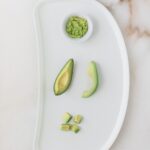
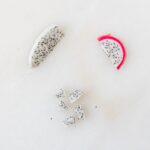
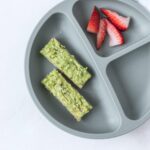





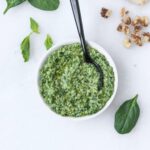

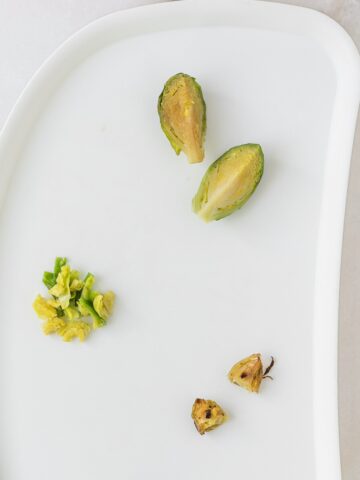
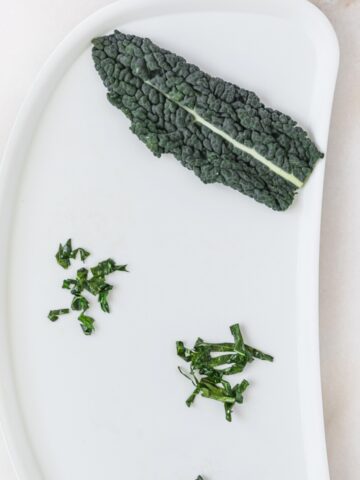
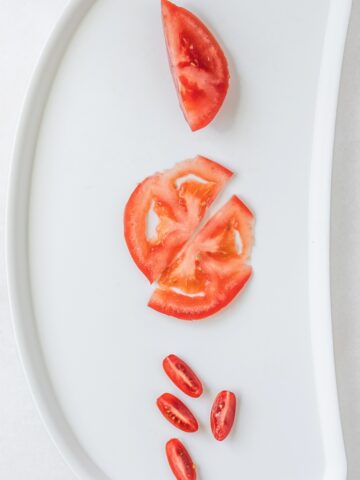
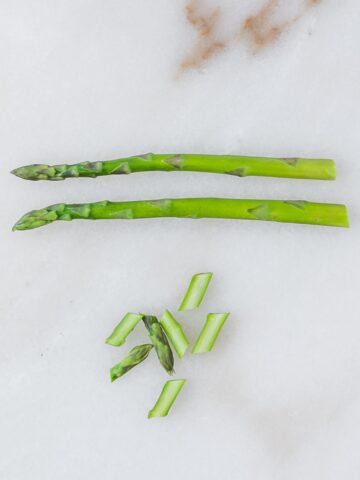
Leave a Reply